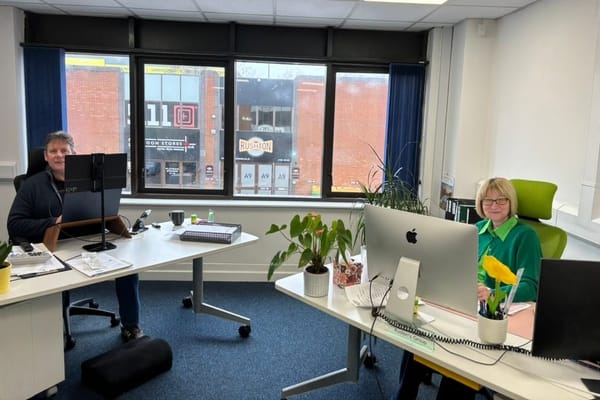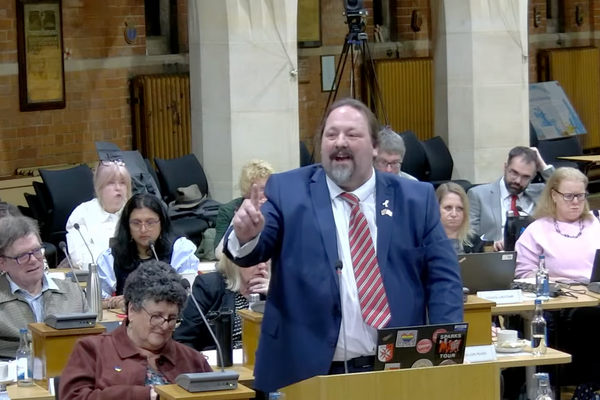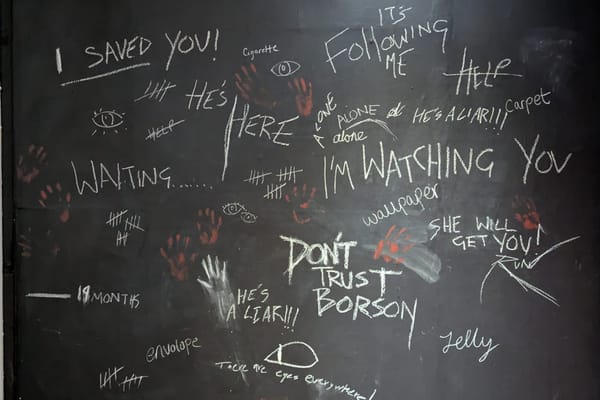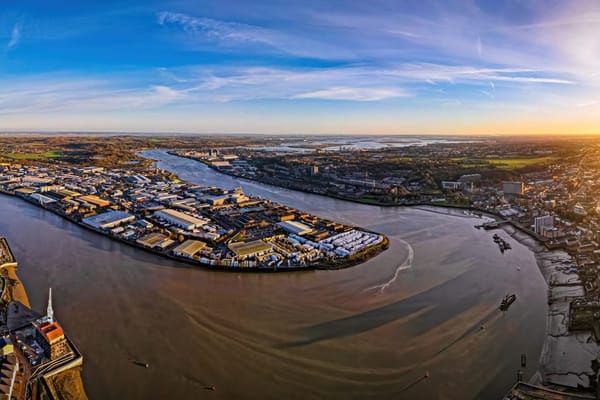"That's the power of having someone in the room"
What Steven asked Caitlin Webb, the UK's first Local Democracy Reporter
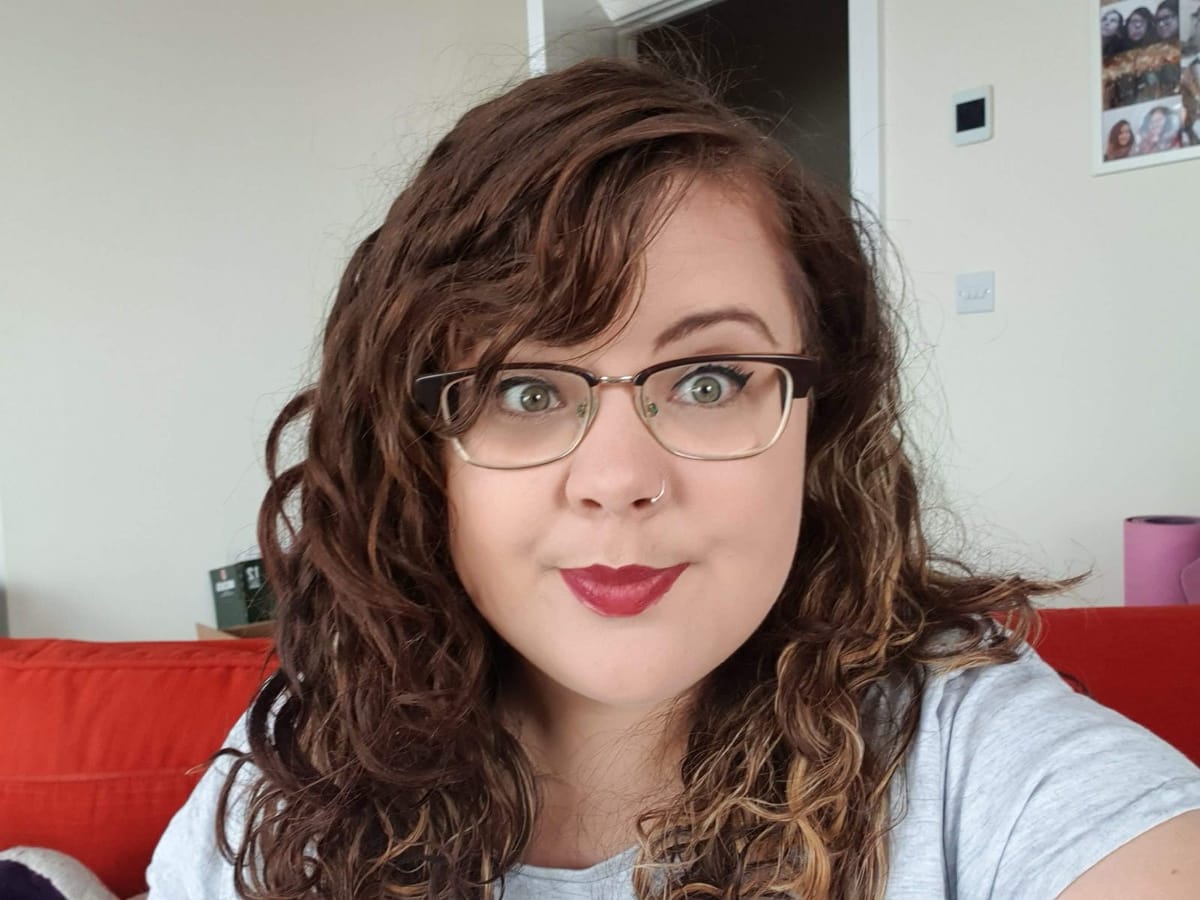
Caitlin Webb is a trained journalist who currently works at the Local Government Chronicle. Previously, she was the UK’s first Local Democracy Reporter. Steven met her to discuss how she got the role and what it entailed, being shocked by the former leader of Kent County Council, and separating journalism from your personal beliefs.

Where were you born?
I was born in Oxford. Radcliffe's Hospital in Oxford.
What jobs did your parents do growing up?
My mum was a nurse. She's now set up her own business. My dad worked in IT but for a good chunk of my childhood was out of work. I always remember him being there when I was home from school.
How did you find school?
I love learning. I absolutely loved knowing what's going on and learning that stuff, but I hated school. I can go on about how the education system is awful, and I've recently discovered I'm neurodiverse, which probably explains why I hated school so much. But then as soon as I got to college, I hated it less because I could choose what classes I was in and had a bit more control of what I studied. University I enjoyed a bit more because of that reason.
What did you study at university?
Politics and International Relations with French. It gave me a year abroad in Paris at a ridiculously elite university.
Your journalism course, was that like a post-grad?
It was. They call it a National Certificate for Training of Journalism. It's a fast-track course with a diploma at the end, which was the equivalent of an A-level.
What was your first full-time job?
I don't know if you can count bar work because I did do that full-time after uni. My first full-time professional job, not that I'm saying working in a bar isn't professional, but for my career’s sake, it wasn't professional. I was a junior reporter at the Surrey Mirror, which now no longer exists. It was in Redhill, and I think it's now part of Surrey Live.
What brought you to the Medway Towns?
Work. I had just got back from working abroad. I worked in Luxembourg and Brussels, and then I had a brief stint in Cambridge. I was covering court cases. Then I saw this position of a Local Democracy Reporter. The scheme had just launched, there were positions all over the country. I applied for places in Wiltshire to Cornwall and Devon and then up north. The Kent Messenger got back to me the quickest, and to be completely honest, I knew the most about Kent because I was a student here in Canterbury. I came here for work because the Kent Messenger Group is based in Medway, and it's one of the cheapest places to live in Kent. The County Halls are in Maidstone, so 20 minute drive to the County Hall, then a 10 minute drive to the KM office. I started off in Gillingham in a flat that was a converted pub. It was these really small, narrow, windy stairs and a one-bedroom flat that really shouldn't have been one bedroom.
What is currently your official occupation?
I am the Chief Reporter for the Local Government Chronicle.
What is the Local Government Chronicle?
The Local Government Chronicle is a magazine, but also a website. It's a trade publication for people who work in councils or work in local democracy and government.
What additional roles, paid or unpaid, do you do?
I'm a trustee for Second Chance Medway, and I help with the communications. I don't think I do anything else. I did play rugby for 10 years. I recently… I think the last two years, I just realised I wasn't having fun anymore, so I stopped doing it. Now I do roller derby. I must admit it's very humbling because I am not naturally good at roller skating. It’s putting myself out of my comfort zone every week.
Where do you do that?
They're officially based in Rochester, but we often go to Walderslade Girl's School. At times, we're at the Howard School. It's whichever school hall that we can use. They're a hugely supportive group, just lovely people all around.
What does your average day entail?
Working as a journalist, there isn't an average day. Mainly because the news is not average and it's not reliable, which is what I absolutely love about it and thrive in, I hope. Usually, I start work at nine or half nine, depending on trains and depending on what I've done the day before, and then we have a newsletter we send that out at lunchtime. My first three hours is trying to find what stories will go on the newsletter. That's either seeing what's happened and seeing if there's any stories or interviews we've done before that we can add to the newsletter, and then after that in the afternoon, it's working on research for investigations we're doing or if there's any events that we can go to. I think this is my first journalism job where they try as much as possible to make it nine to five. Mainly because of the nature of our audience are people who are working in councils, and whilst they don't often have nine-to-five jobs, they tend to keep a nine-to-five schedule as much as they can. But if a Chief Exec resigns or if the government decides they're going to have a new minister for local government or if there's going to be new policy, then obviously we drop everything.
What is a Local Democracy Reporter?
A Local Democracy Reporter was created to solve the problem that councils were not being covered in the same level that they used to be. There used to be a dedicated politics reporter that would go to council sessions and report. The BBC saw there was this gap. We're not getting politics stories anymore. We're not getting people that are on the ground going to these council meetings. They said we want to try and solve that problem because they're a public service broadcaster and because they like stories. Content is key. But then local papers went, ‘But that's what we do, and you're just going to use license fee payers to take our jobs.’ They found a workaround, which was Local Democracy Reporters have a contract with the local paper. I think now they're doing broadcasts. KMTV has a Local Democracy Reporter, so they now do it based on the public publication or the local news outlet, and then they are paid for by the license fee. All of my HR and the contracts were done by KM Media, but all of my content went to the BBC, and it also went to KentLive and it went to literally every other publication.
What was the most shocking thing you saw when covering local politics?

